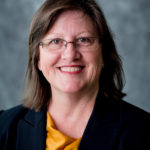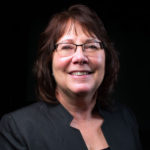 Tell me a little about yourself.
Tell me a little about yourself.
I am originally from Nebraska, and went to the University of Nebraska-Lincoln majoring in finance. While there, I got a good taste for money management through a student-managed fund opportunity. I came to Minneapolis after graduation and started out at a small equity firm with 10 employees. After a year, the principals couldn’t agree on a philosophy and things fell apart leaving us young folks looking for new jobs. This brought me to what is now ING where I got familiar with fixed income I was hired as a trader, and moved into an analyst role making high yield corporate bond recommendations. That led to a portfolio manager role focused on insurance company portfolios. Because Minneapolis was such a great center for financial management, brokers would sponsor road shows – breakfast meetings to ask management questions, learn about companies and risks involved. I met folks at American Express and when they had an opportunity and knocked on my door, I had to say yes. It really propelled my career forward, and I spent the next 10 or so years there. Like many women at that stage in their career, the demands of family and work can be difficult to balance. My husband and I had two big careers, three busy children and felt we needed to make a tough decision. While it wasn’t the best financial decision, we agreed both of us would be happier if I spent more time with the kids, so I took a five-year break. After that, I took a position at the University of Minnesota, which was a good way to transition back into the markets and fulfill my intellectual curiosity. Working with students on an investment fund was a great opportunity for me to get reacquainted with the tight network of mentors at the university from our local investment community. This is how I met the CIO at Prudent Man Advisors where I currently work; we manage money for public entities across the Midwest. My current role as portfolio manager in a small firm is a nice cumulation of everything I’ve learned in the industry.
What sparked your interest in the investment industry and CFA Program?
Math was a subject that I enjoyed but didn’t have a clear career path. I was encouraged by professors early in my college years to take the actuarial science path but realized it was more theoretical than I wanted. I preferred an applied math route and switched back to finance I learned about the CFA Program through my undergraduate finance professors and jumped into the CFA Program 1 year after graduation as I was used to studying and it dovetailed nicely with my work. My employer supported me in the process, paid for my exams and offered career potential. I was surrounded by CFAs in the investment department.
How did you land your first role?
It took a long time to find my first job, which can be true today. Back then the effort was focused on newspaper want ads and sending out resumes by mail. It can be highly competitive and you must be persistent and believe in yourself. I encourage recent graduates to actively pursue their career goals. Whatever role you want, put yourself in a position to interact with those involved and do what you can to manage your own portfolio, even if it is hypothetical. Be persistent and continue to learn. You’ll find the opportunity, though it may take time.
Did you have a mentor or champion who was instrumental in your career?
All of my bosses along the way were influential. Doug Hedberg, CFA at Washington Square Advisors was my main mentor early in my career. He gave me lots of opportunities to try new things. One example was being a young professional and voicing a contrary opinion that high-yield bonds weren’t gone forever after failure of Drexel and Michael Milkenhad caused in the market. It was a way to grow in my presentation skills, embrace that it’s okay to voice an opinion and take some risks.
What professional opportunities and challenges have you experienced?
I do feel like it’s a bit of a male dominated field. Early on if you were not playing golf on Friday afternoons with the rest of the leaders you had more challenges. I had clients that preferred a male portfolio manager so there was overcoming some of those gender preference hurdles. The industry can be a bit like a locker room; there’s a lot of culture that stems from a male dominated way of doing business. I was still able to thrive and move forward staying true to my beliefs, morals and values. One of the most interesting aspects of finance is the ability to learn about so many different industries and have an inside view of how the world is changing. Transferring that information into wealth accumulation and risk management for clients so they can achieve their goals is very satisfying.
What is the biggest risk you’ve taken in your career?
Stepping away from the field and spending time with my family. I wondered if I was ever going to come back and how it would alter my future path. Had I known then what I know now, it would have made the decision so much easier! It worked out just fine. During my break, I managed my own portfolio, went to some CFA meetings, kept my CFA Charter going and stayed in touch with that circle. I think there’s always a door open and an opportunity will arise.
What got you here; how have you been successful in investment management?
I think the key to success is being informed and humble; I saw a lot of people along the way who weren’t long-lasting. Some investment ideas work for a short period but burn out quickly. To have staying power, you need all the things that CFA Charter stands for. If you balance all those things, the financial industry is a great place to help a lot of people and institutions reach their financial goals. We all have to deal with finance in one way or another, it’s a skill-set that transfers well in people’s lives.
18% of CFA Institute’s members are female, and 14% of CFA Society Minnesota members are female. Do you have any thoughts on why more women aren’t pursuing a career in investment management?
I think culture is part of it, women not knowing if they’ll fit in. Secondly, it tends to be highly competitive. Hard driving teams are not always that welcoming to women’s typical work style or interests. The industry is also known for some long hours, so it can be a tough work/life balance.
Research has proven that the returns of diverse investment management teams out perform those of non-diverse teams. Have you seen this in your experiences?
I do think whether it’s gender or other kinds of perspective, groups benefit from that variety. We all come to the table with different experiences and having a diverse team does help. It’s a field where you debate ideas, and the more angles you have, the more developed that thesis can be. Communicating a message is also key to success, and having a professional staff that is reflective of your client base can be very beneficial.
Do you have any advice for young professionals interested in a career similar to yours?
Try to spend some time with people in the industry talking to friends of your parents, neighbors, etc. You’ll be surprised how small the world is; someone is always a phone call or two away. Don’t be intimidated, know that the steps in this career path are achievable and attainable. Take the time to build the foundation and follow the path that is most interesting to you. There are many directions the industry and the CFA can lead you.
As a longtime CFA Charterholder, how have you seen the CFA Program and industry evolve?
One of the biggest changes is that information is so much more available. It used to take lots of staff to create a financial model for a company. Now we have data downloads and with a push of a button, instantly 10 years of history. You must be a good consumer of information to be able to discern fact from fiction. The markets are faster, there’s less time to gather information (compared to road show days) and to vet ideas. Different skills are required than you might expect; practice writing and speaking, the best investment idea doesn’t get anywhere if you can’t communicate. Developing all of those soft skills will help you go far.
This interview was conducted by CFA Society Minnesota’s Member Services Manager, Diane Senjem.






 Tell me a little about yourself
Tell me a little about yourself